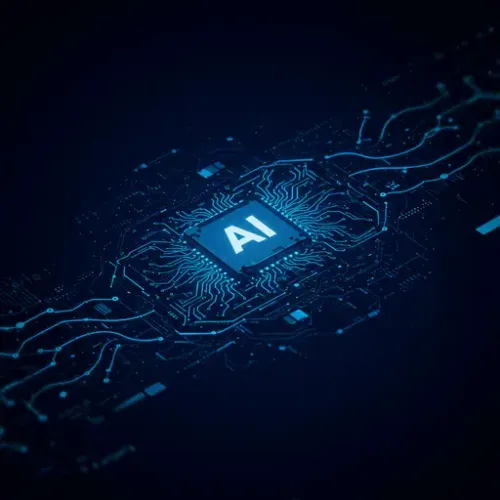Blue-collar jobs are gaining popularity as AI threatens office work

The AI Report
Daily AI, ML, LLM and agents news
The drumbeat of artificial intelligence often fuels anxiety about job security. As professionals grapple with automation's accelerating advance, a surprising piece of advice emerges from the “Godfather of AI,” Nobel laureate Geoffrey Hinton: “Train to be a plumber.”
This isn’t a whimsical suggestion; it underscores where genuine human value will endure in an AI-driven world. While AI excels at automating many cognitive tasks, the jobs proving most resilient are those requiring physical presence, hands-on skill, and the kind of real-world improvisation that machines simply cannot replicate. Understanding this fundamental shift is crucial for long-term career stability and personal relevance.
The Enduring Value of Skilled Trades
Hinton’s counsel highlights a critical distinction: professions demanding manual expertise and practical problem-solving in dynamic environments are remarkably resistant to automation. Microsoft’s research, for instance, predicts significant disruption for roles like legal assistants and customer service, yet occupations such as roofers, hazardous material workers, and nursing assistants remain largely secure. These roles require a physical presence and nuanced decision-making beyond current AI capabilities.
Why Human Dexterity Remains Key
A skilled tradesperson navigates unpredictable conditions, makes on-the-spot adjustments, and performs delicate physical tasks. As Tony Spagnoli, Director of NATE, notes, “AI can’t replace parts or make improvisational decisions.” These are inherently human capacities that define the core value of skilled trades. The Bureau of Labor Statistics forecasts continued growth in various trade sectors, a stark contrast to the plateauing prospects in many entry-level white-collar fields.
Gen Z's Strategic Pivot
Younger generations are already recognizing this trend and making pragmatic career decisions. A recent Resume Builder survey found that 42% of Gen Z adults, many with college degrees, are actively pursuing or working in blue-collar and skilled trade jobs. Their motivation is clear: to circumvent significant student debt and secure careers less vulnerable to AI displacement.
This isn’t merely a reactive measure; it's a proactive investment in tangible skills that offer immediate financial stability and long-term career resilience. When traditional academic paths offer uncertain returns, vocational training provides a direct route to in-demand, practical alternatives that serve real-world needs.
Demystifying Robotics: Collaboration, Not Replacement
While robotics continues to advance, the idea of autonomous humanoids fully replacing all manual labor is often overblown. Ken Goldberg of UC Berkeley's Robot Learning Foundation explains that "Progress is being made at a slow pace." Current AI lacks true real-world understanding, often relying on text-based training, and robots struggle to match human dexterity and contextual reasoning in complex, unstructured environments.
The more realistic outlook for skilled trades involves augmenting human capabilities with technology. AI might assist in diagnosing an automotive issue, for example, but as Matt Shepanek of the National Institute for Automotive Service Excellence states, “You’re still going to need someone to perform the physical action.” Humans will continue to lead in adaptive, nuanced tasks, with AI serving as a powerful tool rather than a wholesale substitute.
Positioning Your Future in a Changing World
The evolving job market demands a fresh perspective on career planning. Instead of fearing AI, consider how you can strategically position yourself to thrive alongside it. For many, this means exploring professions that leverage uniquely human traits: manual skill, critical thinking, adaptability, and the ability to interact physically with the world. Vocational training and skilled trades offer a robust pathway to job security, financial independence, and meaningful work that AI finds difficult to replicate.
It's time to redefine what constitutes a “respected” and “lucrative” career. The trades, once overlooked, are emerging as a smart, secure choice for a future shaped by intelligent machines. What steps will you take to ensure your skills remain indispensable?

The AI Report
Author bio: Daily AI, ML, LLM and agents news
